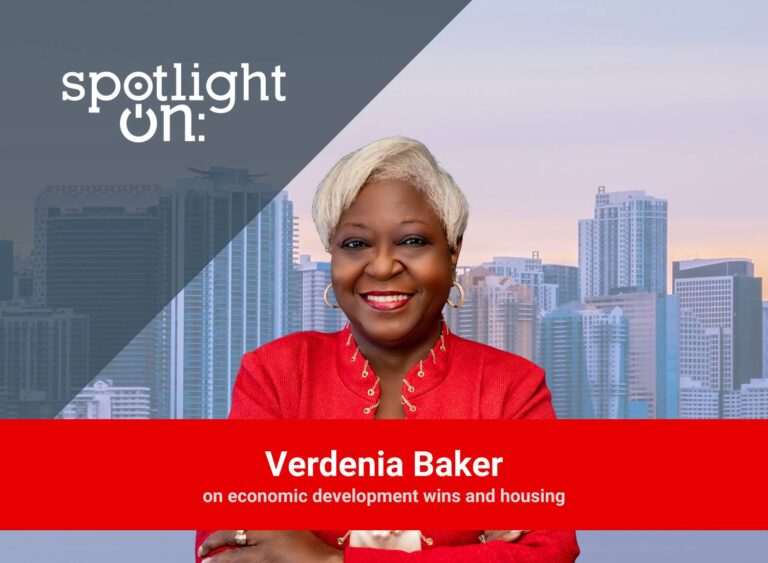Brooke Boyarsky Pratt, Founder & CEO, knownwell
In an interview with Invest:, Brooke Boyarsky Pratt, founder & CEO of knownwell, shared insights into the inception of knownwell, its mission to serve as a healthcare home for patients with obesity, and its growing impact across the region.
How would you describe knownwell’s impact here in the region?
Our aim is to be the healthcare home for patients with overweight and obesity across the country. By “healthcare home,” we mean that patients can see us for primary care that’s thoughtful and inclusive, as well as for their metabolic health concerns, such as obesity. They can do all of that in one place, with specialist clinicians, nutritionists, and health coaches on staff.
We deliver care in a hybrid way — both in-clinic and virtually — and we accept all major insurance, including Medicaid and Medicare. A big part of our mission is to be that healthcare home for everyone, not just for those who can afford to pay cash.
We started with our first clinic just outside of Boston, in Needham. We’re opening two more clinics later this summer in Dallas and Minneapolis. We’re growing rapidly to meet the needs of more patients across the country.
How do you plan to leverage newly secured capital to continue expanding knownwell’s footprint?
To date, we’ve raised $24.5 million, including $20 million in our latest Series A round, which we’re using to invest in three key areas.
First, we’re enhancing our technology, particularly through our recent acquisition of Alfie, which brings AI capabilities to scale our clinical model.
Second, we’re focusing on geographic expansion. After Dallas and Minneapolis, we plan to enter other major metro areas, partnering with health systems and investing in the necessary infrastructure and clinicians.
Third, we’re investing in our processes and capabilities, including clinician training and educating specialists on weight-inclusive care. Streamlining our processes and technology is essential for optimizing the patient experience and supporting our growth.
How are you positioning yourselves in the broader metabolic health landscape, especially compared to more commercial weight loss programs?
Our focus is on being a healthcare home, offering consistent access to real clinicians and comprehensive support beyond weight loss. While medications like GLP-1s are important, we provide a true medical experience, unlike commercial weight loss programs.
During an initial hour-long visit, we review medical records, discuss goals, and address emotional and behavioral aspects of eating if relevant. This personalized care contrasts sharply with companies that offer quick surveys and medication delivery.
Many patients transition to us from those platforms due to three key issues: the desire to use insurance, difficulties reaching their care team, and the need for comprehensive care beyond weight loss. These factors drive patients to choose us over commercial programs.
What motivated you to offer pediatric care?
I’ve struggled with obesity since I was an adolescent. One of my earliest experiences in healthcare was when I was 8, and my doctor told my mom and me that I should go to a “fat camp.” This personal experience, along with my mission-driven focus on helping children, inspired our approach. My co-founder, Dr. Fitch, is double board-certified in internal medicine and pediatrics, so we both share a strong commitment to caring for those under 18.
If we want to be a true healthcare home, why not start earlier? One in five children in the United States has obesity, and they really have nowhere to go. Pediatricians are not trained in how to treat obesity, nor do they have the time. We began serving children because parents often asked us to. For example, parents would say, “Dr. Fitch, you’re a pediatrician, and my child is struggling with their weight — can you see them too?” We realized there was a powerful opportunity to be the healthcare home for the whole family.
We don’t provide primary care for children under 18, but we do work in conjunction with their pediatricians. It’s a different kind of business, but we’re thrilled to partner with pediatricians to treat childhood obesity.
What tech and innovative approaches are you using, particularly with AI, and how do you see these shaping the future of obesity treatment at knownwell?
It’s really exciting because we believe there are different phenotypes of obesity, though the research is still in its early stages. For instance, there seems to be a fundamental difference between someone like me, who started gaining weight before puberty, and a woman who starts struggling with weight after her first pregnancy. This growing, albeit nascent, research suggests that these profiles need to be treated differently.
Without big data and AI, we’d be limited to pattern recognition — anecdotes from doctors about what generally works for certain types of patients. But with the analytics we now have, we can track patients over time in a data-driven way and start to understand trends. We can see if there are real differences in outcomes and treatments between these different phenotypes of patients. As we better understand this, we’ll be able to treat patients more effectively from the start.
Another aspect is how AI can assist doctors by reviewing full medical records, which are often too lengthy for a human to thoroughly read. AI acts as an extra set of eyes. While it doesn’t replace doctors — at least not in my lifetime — it’s a powerful tool that can help catch details a doctor might miss, like a weight loss treatment tried years ago or a condition from childhood. Ultimately, this can lead to better patient outcomes.
Given current trends towards telehealth and virtual care, what are your patients looking for?
We’re seeing that patients want flexibility. It’s interesting — during the peak of COVID, many declared the physical clinic dead. But, as Chrissy Farr recently pointed out in a great article, we called it too early. Physical clinics are far from obsolete. In fact, recent polls this year show that patients still have a strong preference for seeing their clinician in person.
However, what we consistently see with our patients is that they value having options. They might come in once a year for their physical, enjoying the face-to-face interaction with their doctor. If they have a physical concern, like a lump, they want someone to physically examine it. We haven’t figured out how to do that virtually yet. But they also appreciate the convenience of a virtual follow-up appointment, which allows them to step out of work for a quick 15-minute phone call rather than going to the clinic.
This hybrid model is here to stay. I believe we’ll see more consolidation among virtual-only offerings because patients ultimately want the ability to choose between in-person and virtual care.
How do you see the role of healthcare providers evolving to better understand, address, and combat obesity stigma?
I believe it starts in medical school. Until recently, physicians received only about four hours of training on obesity throughout their entire education. That’s simply not enough for such a complex disease. Moreover, there’s been a lack of cultural sensitivity training, focusing solely on the medical aspects of obesity. This approach, known as the weight-normative approach, has been around for 30 years, but we have extensive research showing it hasn’t been effective, as obesity rates continue to rise.
At knownwell, we tackle this in three main ways. First, we encourage our clinicians — whether they’re doctors, nurse practitioners, or physician assistants — to get board-certified by the American Board of Obesity Medicine (ABOM). We sponsor that certification and are thrilled when our staff take advantage of it.
Second, we provide our own training at knownwell. This includes not only what we believe are the best medical practices but also guidance on how to talk to patients about their weight in a culturally sensitive manner. We take a dual approach, aiming to increase education around the disease state while also fostering a more inclusive and supportive environment.
Given the current focus on health trends such as social determinants and mental health, how are you integrating these into your offerings?
First and foremost, we ensure that our staff receives culturally sensitive training, which we’ve discussed at length. The second aspect is related to the type of insurance we accept. We take Medicaid, not because it reimburses well, but because we recognize that obesity often has a socioeconomic dimension, affecting certain populations more than others. We believe it’s important to serve these patients, and few companies do so, which is why we’re proud to.
Third, we carefully consider where we locate our clinics. We aim to place them in areas that are accessible, whether by public transportation or simply due to their central location, so more people can reach us if they choose to visit in person. Finally, one of the great benefits of telehealth is that it allows patients who either don’t have the means to travel or lack the mobility to still receive care virtually. This is a crucial part of our commitment to accessibility.
How do you ensure compliance with data protection, patient privacy laws, and other regulations?
There’s no shortage of regulations, as you can imagine. On the data and AI side, we’re monitoring the landscape closely. The good news for us is that our AI isn’t directly interacting with patients or making decisions on its own, which reduces some of the risks compared to AI systems that do. However, privacy and consent are still critical areas where we need to stay vigilant.
Additionally, regulations around Medicare and Medicaid are always evolving, so we keep a close eye on those to ensure we remain compliant as we expand into new states and continue to treat patients.
What’s your take on the future of healthcare?
I believe we’ll continue to see a push towards more personalized healthcare, whether through new testing methods or genome-specific drugs. Healthcare is increasingly becoming more individualized, which is really exciting. However, this trend also presents challenges, particularly regarding healthcare costs. It will be interesting to see how these costs evolve as personalized medicine becomes more prevalent.
We’ll also see more integration of technology, like wearable devices, which will enable even more personalized care. The challenge, though, will be the cost of these advancements. GLP-1 medications are a prime example — they’re life-changing for many, but the U.S. is struggling with how to pay for them. We’ll see similar issues with new, genome-specific cancer treatments and other innovations. The key challenge will be ensuring that these advancements don’t exacerbate socioeconomic disparities, making sure that access to these innovations isn’t limited to the wealthy.
Looking ahead for knownwell, what are your top priorities for the next two to three years?
We have three main priorities. First, we aim to expand our clinical care to more patients across the country. Second, we want to ensure that as we grow, our clinical outcomes remain best in class, delivering the best possible results for our patients. Third, we’re focused on building the technology and teams necessary to support this expansion and maintain our high standards smoothly.
We’re proud to have started in Boston and to be a Boston-based company.













